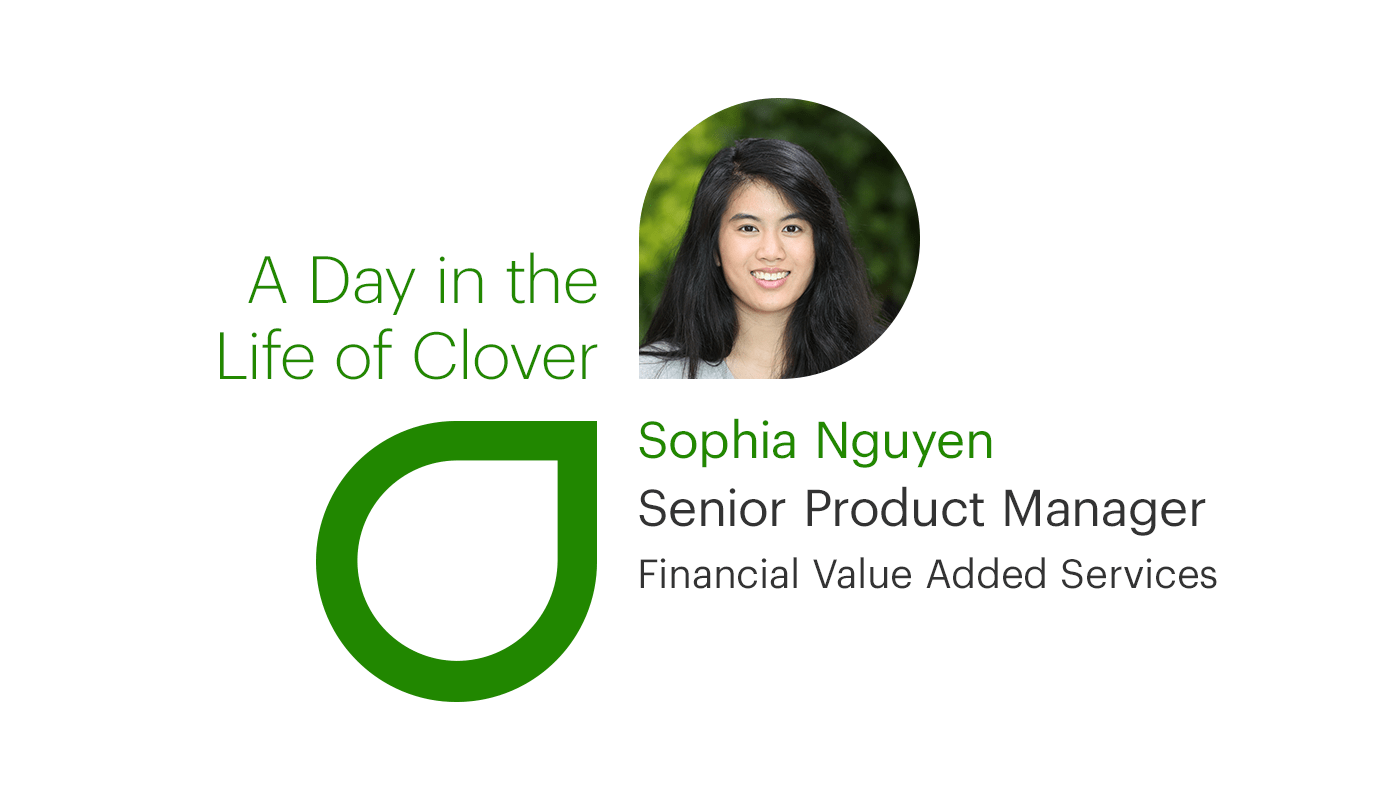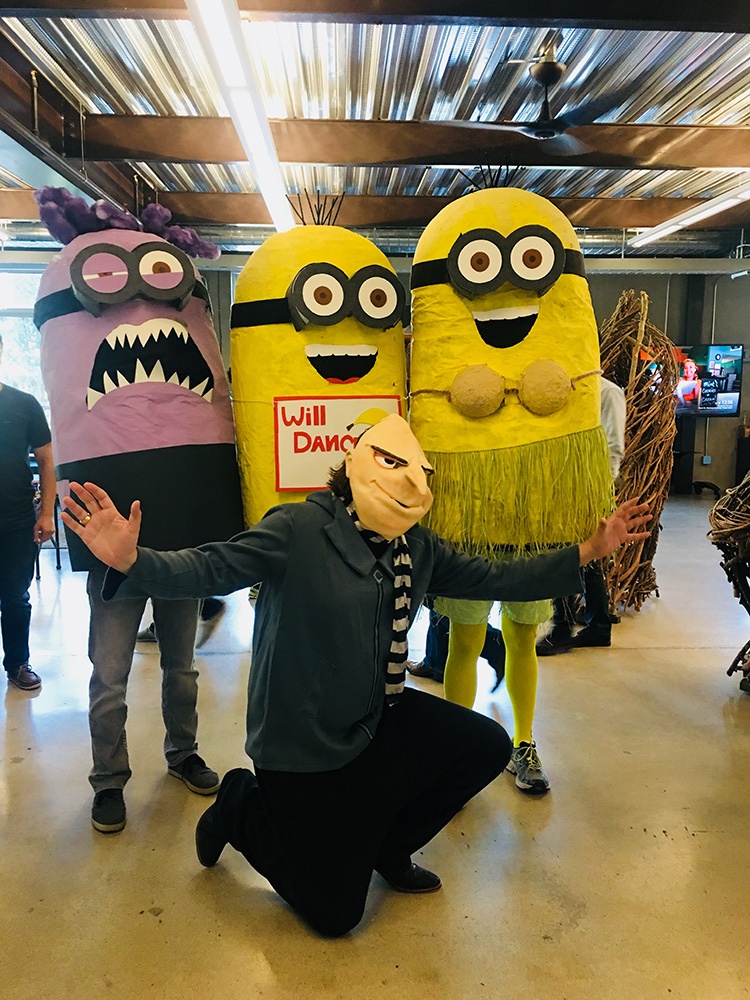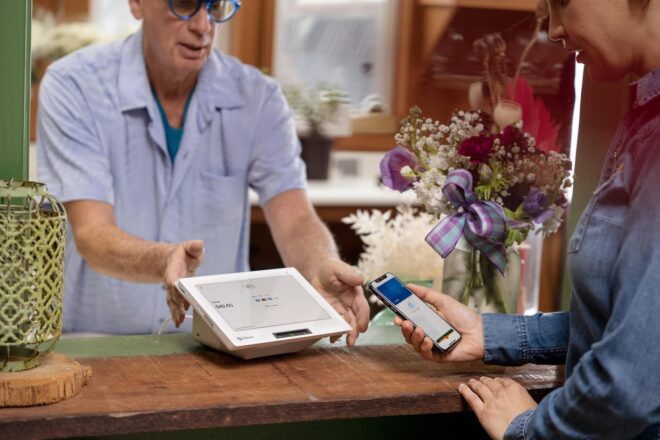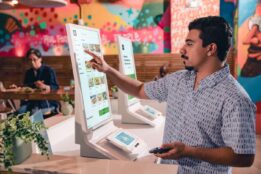A Day in the Life of Clover
Editorial Team
17 min read
Welcome to “A Day in the Life of Clover”! This storytelling series brings you right inside our company in a Q&A face-to-face with the people who make Clover hum. We kick off our inaugural post with Sophia Nguyen, Senior Product Manager for Financial Value Added Services.
Clover: Hello Sophia! Why don’t we dive right in. We’d love to hear your Clover origin story. How did you find Clover, or did we find you?
Sophia Nguyen: You definitely found me! Five years ago, I was working at Microsoft in Redmond, Washington. Because of his H1B visa situation, my French then-boyfriend (now husband) had two options: either move to the San Francisco Bay Area, where his current employer was based, or try to find a job in Seattle and hope that the new employer would be able to sponsor him. The first option was a safer bet for him but it meant I’d need to find a new job.
So I went on the Hired.com website, which was very new at the time. It flipped the recruitment model: usually you search for companies that are hiring, but in this case, you enter in your details and what you’re looking for. So that’s how I found out about Clover—actually, Clover found me.
They were looking for a program manager, which is what I was at Microsoft. But they were also looking for their first product hire, under their head of product. I interviewed with our COO, but after my meeting with him, I got moved into a series of interviews with John Beatty, the CEO, and several others, and at the end of that whole process I was surprised with an offer for a product management position, not a program management position—and that’s actually how I switched roles. I don’t know what I said! I must’ve said something they liked. They were impressed with my analytical and reasoning skills; I also asked John some hard-hitting questions about the space he was hoping to expand into.
Clover: So your title was product manager when you joined?
Sophia: Back then they didn’t have titles, but technically, the role I had when I joined was [that of] an associate product manager. About 1-2 years in, I was promoted to a product manager, then in 2019 to a senior product manager. That was actually very fast. To become a senior program manager at Microsoft takes 7-10 years. I started sort of at the bottom because I was switching competencies. It didn’t feel like it was fast, but looking back, yeah it was fast.
Clover: What does a product manager do?
Sophia: The entire product management competency is centered around identifying the growth opportunities for a company and realizing them. For a tech company, it’s almost always engineering-related. New products or features you’re trying to ship out. All product managers do something related to that. But the level of seniority that you have is a reflection of the scope of the problems you can tackle. For example, as an associate PM you’d be given a smaller scope. You’d start out by learning the ropes, how to interact with the engineering team. How to create requirements that are legible and easy to test, easy to develop to. Resolving conflicts. Fixing bugs. Trying to understand the business—and the relationship between what you’re working on and that business.
At the large companies, a single junior PM might be in charge of a button. That’s how small the scope would be. But at Clover, your APM role is a little meatier than that.
For me, I got quite a large scope for the level I’m at. They gave me an entire new branch. I was in charge of—well, I am still in charge of financial value added services, a totally new growth area in the company. There was an entire profit & loss center created around the concept of financial products for SMBs. At any other company that would have been a director or a VP—certainly at least a principal—taking care of something that large. I was very lucky to get something that weighty and meaty at the level that I was operating at.
So it’s a question of scope… and a question of how many individuals you have to have in your orbit to execute at the scope you’ve been given. Because when you’re an APM, it’s just you and your developers, and maybe a designer and a content person. I had to think about the channels, I had to think about marketing, I had to think about this entire organization that’s in charge of financials, where the money was going to come from, in addition to normal development. So the number of individuals and departments that you have to pull into your orbit to accomplish your tasks is also a factor in seniority. I’ve had three different products in my tenure at Clover, and this one, the financial value added services, is the biggest.
Clover: What other products have you worked on during your tenure here?
Sophia: Before financial value added services, I worked on multi-location, which is a flavor of our core point of sale product. Our point of sale system was originally meant for small businesses that had not expanded. So one location, maybe two. After two locations, it’s probably not the right product for you. It was fascinating because merchants don’t distinguish—you’re just Clover to them no matter what their business setup is. I would hear things like, This feature is missing. And that’s missing! It doesn’t work the way I want it to work. It was the first time I was exposed to challenges in different verticals and the challenges for different-size merchants in each vertical. The number of ways you could group and subgroup merchants based on needs, size, and job categories became clear to me very quickly. The basic Clover product hit a lot of the basic needs but it didn’t go very deep—and that’s how we’d been able to go so broad. We had a lot of non complex merchants, but when a merchant grows, they become more complex. So to go up-market was not just an exercise in making our very basic feature suite work across multiple locations, it was also an exercise in deciding, do we want to hit that complexity.
Before Multi-location I worked on the ISV program. We had a product geared toward independent software vendors. John [Beatty]’s early vision was of Clover as a core hub that provides basic payment capabilities in a beautiful machine. The ISV would then come in with a fully fledged POS and they’d hook up into our device, and they’d sell the two of us together through their channels. So we wouldn’t have to worry about sales or the complexities of a vertical-specific solution, but we’d get the processing revenue and we’d get the hardware sale.
Clover: Take us through a typical day at Clover.
Sophia: Oh, it was different in the different eras. When I was working on the ISV product, I had a very early start—6:30am. From seven to noon I was fielding calls with partners, who were on the East Coast. That was the time I was trying to figure out what these channels need to be successful. Then I’d work on our sprints. I was also constantly managing the requests from our partners.
When I was on Multi-location, my time would be split between working with the user experience research team and interviewing the merchants, and then developing requirements. Then I’d sit with the UX designer and the content person to make a visual representation of the high-level idea we wanted to bring to market. And then there were long rounds of negotiation with the engineering team.
On any given day, I could be asked about any of the [JIRA] stories I had written. My stories are actually pretty detailed, and that gives you an idea of how complicated the product was. Someone would come up with some edge case from the moon, and we’d have to figure out how to update the requirements to incorporate that edge case. We’d prep with the release management team. I’d do presentations all the time to justify what we were doing, when it was going to come out. Lots of bug fixes too—once I stayed up all night because we had a complicated bug in multi-location inventory. A merchant had a thousand inventory items in twenty locations [that had been affected], and I spent all night working on the fix.
Right now it’s not too bad. I would say 9 to 6 typically. ISV land was 7am to 7pm. Multi-location days varied, but never longer than 8am to 6 or 7pm. FinVAS days depend on the time of the year, because I had to put together all the financials. I turned into a pseudo CFO. Whenever it came time for our annual operating budget or to provide hard financials, I’d end up with longer days. So it could be very easy, like 9 to 5, or it could be longer, like 9 to 9.
Clover: Tell us about a particularly daunting problem you’ve had to solve, or challenge you’ve had to face.
Sophia: FinVAS probably the toughest one. Multi-location was difficult from a user experience perspective but not from a product perspective. There was a lot I could learn just by understanding how the point of sale product we’d already built worked, and growing from there, you have something to latch the new thing you build onto. Financial value-added services was brand new. This company had never ever done anything related to money before. We had never offered a loan. We had never had [anything like] Rapid Deposit. We had never extended debit cards or credit cards, or revolving loans, or anything to do with money—other than processing. So there was an element of “nobody at this company knows anything about this.” It was brand new white space, with no hub of knowledge to fall back on.
Luckily for me, I had done my undergraduate in economics so I had an idea about the different financial products and how they work at a macroeconomic level. If I hadn’t, I would have been in trouble. There was an uncertainty there, a very steep and long ramp-up period. It was also a scenario that was completely inorganic. For the other products we built, there was an origin story—John goes into a bar and he talks to a guy and he finds out that this guy wants this one thing, and to get this one thing he has to chuck his entire POS system out and buy a new one. So organically, there’s a story for why someone would want a flexible POS. There’s a reason.
FinVAS was inorganic. The concept was a good idea but it didn’t have an origin story rooted in desire. So we were scrambling trying to figure out how to make this thing profitable, how to make it successful, without knowing—at all—why someone would want it in the first place. This was probably one of the most uncertain, wide open, nothing to cling on to, positions I’ve ever been put in, and I would say it was the hardest thing to figure out, so far, for me.
Clover: That does sound tough. How did you go about addressing it?
Sophia: I took a two-pronged approach to understanding the space better. The first step was just straight-up research. It’s not hard to find articles that explain different types of financing available to SMBs. We had partners who were a bit more knowledgeable than we were—like Nav and Two Sigma. I was able to interview them and orient myself in the space a little bit better.
Secondly, we had data. One of the products I had inherited had been around 7 years and had been rebranded as Clover a year before I got put on the case. So there were ways to get what I was looking for, but it was hard, hard to come up with them and hard to piece everything together.
What made it doubly hard is that normally, in non financial situations, everything is rooted in a specific job or workflow that a customer wants to do. Like, I’m a merchant and I want to sell jewelry, and when my supplier comes in and gives me the stuff, it gets categorized a certain way, but I want to categorize it in a different way. So there’s a specific job you’re solving for. But financial value added services is not job-based, because money’s fungible. Money can be used for anything. So to pivot away from a very hyper-focused needs- and jobs-based viewpoint to something that’s more abstract was hard. I think I managed it eventually, but it was difficult to figure out what the new rules of the game were.
Clover: How is Clover different from other workplaces you’ve been?
Sophia: I only worked at one other large firm before Clover, but I’ll say that Clover has a really unique culture. So special. The culture at the previous company was very me vs you. You had to watch how you present yourself and constantly curate your image. It was exhausting, the emotional stress and toll of having to worry about that. Clover is very authentic and organic. People can be people, you know. It’s not so formal. The people at the top, the leaders are genuinely nice, good, humble people—like Ellen, Sachin, John, and Zan. They created a company that’s hard to leave. They did a really good job making everyone feel valued, like we’re in this together. Most executives you feel like you can’t really talk to, you’re afraid to look dumb in front of, you feel like they’re unapproachable, but John is a just human being. He’s very smart—scary smart—but a nice person, and so open and so friendly. Anyone felt like they could approach him and talk to him, and have a good interaction. That’s sort of representative and symbolic of how the company is, very open and not hierarchical. It really felt like a family.
Clover: How has the pandemic altered your work schedule or way of working?
Sophia: Things aren’t as separated as they used to be. I used to go to work and I’d have a list of things I wanted to do, and I wouldn’t go home until I’d done them. But when I came home, that was it, that was personal time now. I could bound my workday, you know. It was easier to chat and socialize with my coworkers. During the pandemic my interactions with people became extremely transactional; there was less time for social purposes. So the social aspect is sort of gone from the job.
I became more isolated because my product is so separate from the rest of the company; I didn’t have to interact with very many people. There were no more boundaries about when I’d do work and when I wouldn’t do work. So I’d be cooking lunch in the middle of the day, which I would never ever do normally. It felt so bad, oh my God, I’m supposed to be working! But then the flip side was, because I was doing that in the middle of the day, now I had to log in at 9pm at night to finish things that didn’t get done. I’d work on the weekends. My un-violable 9 to 6 block got violated by personal stuff, so I’d end up kicking things into the evening, kicking things onto the weekend, kicking things into the early morning. I guess what I’m trying to say is that the day is more flexible than it used to be.
Clover: What’s your favorite food?
Sophia: I don’t know! What is my favorite food? I like lemon-flavored desserts, they’re really yummy. I have a big lemon tree in my backyard, I have to do something with those lemons.
Clover: If you could go anywhere for a vacation, where would that be?
Sophia: My husband’s French so I love going to France. One of my best friends lives in London, and when we go to France, I also go to London to visit her and he goes with his parents for a couple days. I miss doing that. The first place I’d go when we’re able to travel again is probably London to see my friend. And.. I kind of wanna go to the highlands of Scotland… because of Outlander [laughs].
Clover: What do you like to do in your spare time?
Sophia: I like to sew. I like to read. Sometimes I take on these big projects—I made these huge, perfectly proportioned Minion costumes in 2017 for our company Halloween event. It took me like 40 hours over 3 months but it was so worth it. People thought they were sculpted. They didn’t think I’d made them, they thought I’d ripped them off Pixar or something.

Clover: Did you win?
Sophia: I didn’t! [laughs]. I placed second behind the cast of Game of Thrones, just like the year before I placed second behind the cast of Stranger Things. What I’ve learned is corporate Halloween costume parties really hang on how effectively you can plug into the current zeitgeist, and I’ve always been more into what felt fun to make. I really enjoyed making those Minion costumes, they were just so ridiculous and over the top. At the very least I thought it would make my boss and coworkers laugh.
If people had realized how long it’d taken to work on them and if I’d done better marketing, like, self-promotion, I’m pretty sure we would’ve won. But because people thought I’d purchased them or stole them from a movie set, and because [the film] wasn’t very relevant—it’s a kids’ movie from three years prior—we didn’t win.
Clover: Do you have an inspirational quote you like to live or work by?
Sophia: My favorite one is by Maya Angelou:
“I’ve learned that people will forget what you said, people will forget what you did, but people will never forget how you made them feel.”
I find it to be so true. Many times I feel like I could have done something better, could’ve gotten better results, could’ve whatever, and from a dollar and cents perspective, yeah, it’s better to do better, but what I’ve noticed is bringing everybody else along and making sure they feel included and respected and like they have personal agency is always the right metric to maximize. How fast you ship, how much revenue you pull in, how many bugs you have—the hard metrics that the industry tends to focus on—those can’t be maxed out at the cost of people’s emotions, and building karma is how you get the goodwill necessary to take risks and stretch beyond your comfort zone.
Related Posts
How 5 entrepreneurs turn browsers into buyers at farm and artisan markets
PYMNTS: Small businesses turn to platforms to simplify payment operations
Popular Topics
Stay in touch
Sign up and learn more about Clover.
Thank you for your subscription!
More posts about starting a small business
eBook
Retail roadmap: Financial goal-setting for the year ahead
Please share your contact information
to access our premium content.
Thank you for sharing your contact information.
Download Now





